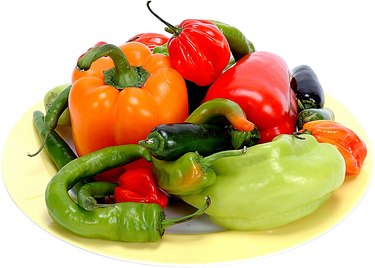
Paprika is a reddish, piquant spice that is made from finely ground peppers, such as red bell peppers, green peppers or jalapeno peppers. Sometimes a blend of these peppers are used to make paprika, which can vary from spicy to mild. Consult an allergist if you think you may have an allergy to paprika or other foods. Rarely, a life-threatening condition can occur during a food allergy. This condition, called alaphylaxis, constricts the airways and may cause acute breathing problems. Seek emergency medical help if someone experiences breathing problems as a result of a food allergy.
Food Additives
Video of the Day
Since paprika is a spice, it may contain chemicals to preserve it, enhance its flavor or color. If you have an allergy to paprika, but not fresh peppers, you may actually have an allergy to one of the additives in paprika. Spice blends sometimes contain preservatives such as sulphites, benzoic acid or nitrates, which can cause allergies in some people.
Video of the Day
Food Intolerance
According to the Mayo Clinic, some children with food allergies outgrow them; however, if these allergies persist into adulthood, it is less likely that the allergies will go away. Some people have an intolerance to a certain food, such as paprika, without having a full-blown allergy. Food intolerance may cause gastrointestinal distress, such as diarrhea, gas and cramps, but it is a less serious condition than an allergy.
Avoidance
If you have an allergy to paprika, you need to avoid certain spice blends, salad dressings and sauces that contain it. Read labels carefully and learn the signs of an allergic reaction. You also may have to avoid certain types of peppers, including green, red and yellow bell peppers and jalapeno peppers.
Signs of a Food Allergy
Signs and symptoms of a food allergy are numerous and varied. After ingesting a certain food, you may experience just a few symptoms or a full-blown attack, depending on the amount of the allergen you've ingested. An allergic reaction may cause hives or flushed red skin. Sometimes there is tingling or itching inside the mouth or swelling of the face, tongue or lips. Coughing, wheezing, stomach cramps and dizziness also are common signs of a reaction.